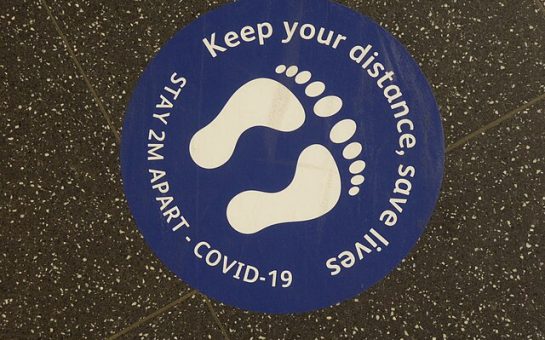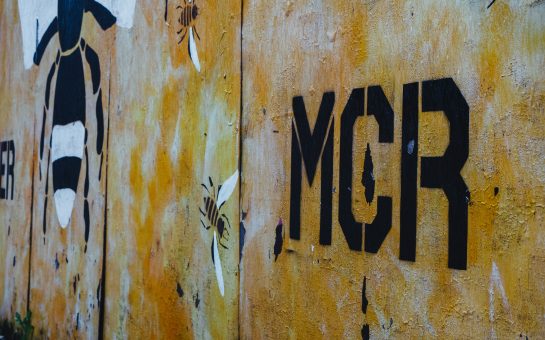Following the spread of a coronavirus variant across the UK, many questions have arisen concerning this variant and the rate at which Covid 19 is mutating.
Viruses constantly mutate over time which results in an alteration in the virus’s genome (its set of genetic instructions).
Most of the time, these alterations are ‘silent mutations’ which
have no effect on the functioning of the virus; although they alter the genotype (genetic material) of the virus, they do not alter its phenotype (structure and function).
However, some mutations, by changing the structure of the viral proteins, alter the virus in a detrimental way to its survival and/or propagation.
Other mutations are beneficial to viral function and increase the ability of the virus to survive and reproduce.
Mutations that are beneficial to viral reproduction tend to cause the greatest problems for the host – in this case humans.
But how do these mutations occur and what effects has this caused in Covid19 and the efficacy of vaccines?
Mutations: Mutations happen when a virus enters the host cells and begins to replicate.
They occur by chance and most are silent alterations to the virus’s genome, meaning they do not alter the structure of the virus’s proteins.
Since the novel coronavirus SARS-COV 19 (Covid19) was identified over a year ago, virologists have traced more than 12,000 mutations in Covid19 genomes.
Again, most of these mutations have been silent, but some have caused alterations that increase the transmissibility of the virus, such as the 202012/01 variant, which appeared to originate in South East England and is currently spreading across the UK.
Once ‘beneficial’ mutations such as these arise, the frequency of transmission of the resulting variant increases within a population through means of natural selection, due to its advantageous characteristics.
RNA vs DNA viruses: Covid19 is an RNA virus, meaning its genome consists of RNA (ribonucleic acid) rather than DNA (deoxyribonucleic acid). RNA and DNA differ in two notable characteristics: they consist of different bases and sugars.
These differences are significant in the way viruses replicate within host cells.
RNA viruses express and replicate their genomic RNA inside host cells, using a copying enzyme, which produces an RNA strand complementary to the virus’ RNA .
In general, viruses such as these tend to pick up mutations at a higher frequency because this copying enzyme is prone to making errors.
However, sequencing data suggests Covid19 is mutating at a slower rate than most other RNA viruses.
For instance, mutations appear to arise at a rate that is half of that in the
influenza virus and one-quarter the mutation rate in the HIV virus.
Because the influenza virus changes at such a great rate, there is a need for yearly alterations to vaccines, to account for variations in the strains.
In the case of HIV, the high mutation rate has resulted in numerous strains of the virus, presenting a major obstacle to developing an effective vaccine.
The apparent low rate of mutations in Covid19 could be due to the existence of a ‘proofreading’ enzyme coded by the viral RNA.
This enzyme corrects potentially fatal copying mistakes that may result from viral replication.
What this means for vaccinations: With the rapid Covid19 vaccine roll-out underway, scientists are questioning the efficacy of these vaccines against new coronavirus variants.
Current vaccines are based on the spike protein sequence of Covid19.
This is the protein in Coronavirus that mediates its entry into host cells.
As mutations occur that affect the configuration of the viral spike protein, as is the case with the recently discovered South Africa variant, there is the fear that the efficacy of vaccines against this variant might be reduced.
Most experts in the field think the currently available vaccines will still be effective to some extent at reducing infection and disease rates.
Any effects on transmission of the virus remain to be clarified.
Fortunately for us, there is always the ready option of modifying vaccines to target specific variants.
Sources:
https://www.nature.com/articles/d41586-020-02544-6
https://www.nature.com/scitable/topicpage/genetic-mutation-1127/
https://www.bbc.co.uk/news/science-environment-55404988
https://www.nature.com/articles/s41579-020-00468-6#:~:text=14
https://www.nature.com/scitable/topicpage/genetic-mutation-1127
https://pubmed.ncbi.nlm.nih.gov/term=coronavirus+mutation&filter=pubt.review
https://www.aidsmap.com/about-hiv/search-hiv-prevention-vaccine



